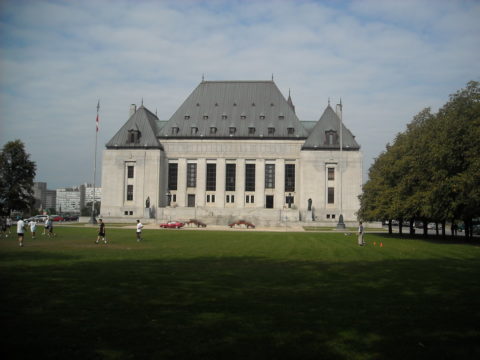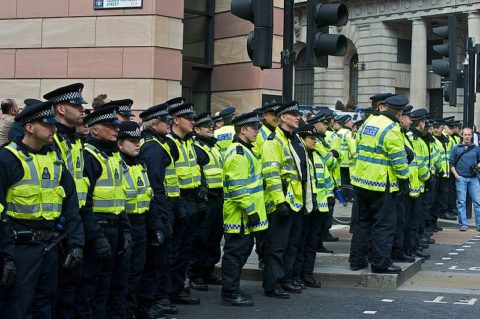The History Guy: History Deserves to Be Remembered
Published 29 Nov 2021Around 7 in the evening on April 21, 1900 two large explosions rocked the hamlet of Thorold, Ontario. It was an act of terrorism, an attempt to breach the locks of the Welland canal — a ship canal connecting Lake Ontario to Lake Erie, allowing ships to bypass Niagara Falls. Three men were arrested, but who were these “dynamitards”? It would be two years before the identity of their notorious leader would be revealed.
This is original content based on research by The History Guy. Images in the Public Domain are carefully selected and provide illustration. As very few images of the actual event are available in the Public Domain, images of similar objects and events are used for illustration.
You can purchase the bow tie worn in this episode at The Tie Bar:
https://www.thetiebar.com/?utm_campai…All events are portrayed in historical context and for educational purposes. No images or content are primarily intended to shock and disgust. Those who do not learn from history are doomed to repeat it. Non censuram.
Find The History Guy at:
Patreon: https://www.patreon.com/TheHistoryGuy
Please send suggestions for future episodes: Suggestions@TheHistoryGuy.netThe History Guy: History Deserves to Be Remembered is the place to find short snippets of forgotten history from five to fifteen minutes long. If you like history too, this is the channel for you.
Awesome The History Guy merchandise is available at:
https://teespring.com/stores/the-hist…Script by THG
#history #thehistoryguy #Canada
November 30, 2021
Dynamite Luke Dillon and the Welland Canal
November 29, 2021
QotD: The law
Here one comes upon an all-important English trait: the respect for constitutionalism and legality, the belief in “the law” as something above the State and above the individual, something which is cruel and stupid, of course, but at any rate incorruptible.
It is not that anyone imagines the law to be just. Everyone knows that there is one law for the rich and another for the poor. But no one accepts the implications of this, everyone takes it for granted that the law, such as it is, will be respected, and feels a sense of outrage when it is not. Remarks like “They can’t run me in; I haven’t done anything wrong”, or “They can’t do that; it’s against the law”, are part of the atmosphere of England. The professed enemies of society have this feeling as strongly as anyone else. One sees it in prison-books like Wilfred Macartney’s Walls Have Mouths or Jim Phelan’s Jail Journey, in the solemn idiocies that take place at the trials of Conscientious Objectors, in letters to the papers from eminent Marxist professors, pointing out that this or that is a “miscarriage of British justice”. Everyone believes in his heart that the law can be, ought to be, and, on the whole, will be impartially administered. The totalitarian idea that there is no such thing as law, there is only power, has never taken root. Even the intelligentsia have only accepted it in theory.
George Orwell, “The Lion And The Unicorn: Socialism and the English Genius”, 1941-02-19.
November 17, 2021
The Supreme Court of Canada — four-ninths woke
In The Line, Leonid Sirota discusses a disturbingly narrow victory for freedom of speech in the Supreme Court of Canada’s decision in Ward v Quebec (Commission des droits de la personne et des droits de la jeunesse):

“Supreme Court of Canada, Ottawa”by daniel0685 is licensed under CC BY 2.0
The Supreme Court’s recent decision in Ward v Quebec (Commission des droits de la personne et des droits de la jeunesse) has attracted considerable public attention, and for good reason. Although no law was in danger of being found unconstitutional, the case did concern the limits of the freedom of expression, which have always been controversial, and are perhaps more controversial now than they had been in decades. In brief, the issue was whether nasty jokes by an “edgelord comedian”, as The Line‘s excellent editorial described Mr. Ward, at the expense of Jérémy Gabriel, a well-known disabled child artist, amounted to discrimination that could be punished by an award of damages.
Much has already been written about the Supreme Court’s narrow decision in favour of Mr. Ward; for my part, I have already commented on (mostly) the majority opinion on my blog. Here, I focus on the dissent, in which, as The Line put it, “[t]here’s an incredible amount of popular modern discourse seeping into judicial reasoning” that “culled plausible-sounding legalese from Twitter logic”. That sounds about right.
But let me put it slightly differently. The dissent is, in a word, woke. And I do not mean “woke” as a generic insult. Nor do I mean, incidentally, that Mr. Gabriel is a snowflake. I think he deserves sympathy on a human level, though not the protection of the law for his claim. Rather, what I mean by calling the dissent woke is that it embraces a number of specific tenets of contemporary social-justice ideology, which, if they become law ― and they were just one vote away from becoming law ― would be utterly corrosive to the freedom of expression.
For one thing, the dissent erases the line between words and actions, so that disfavoured words are treated as deeds and therefore subjected to vastly expanded regulation. Justices Abella and Kasirer (with whom two others agree) write:
We would never tolerate humiliating or dehumanizing conduct towards children with disabilities; there is no principled basis for tolerating words that have the same abusive effect. Wrapping such discriminatory conduct in the protective cloak of speech does not make it any less intolerable when that speech amounts to wilful emotional abuse of a disabled child.
In what is going to be a theme of my comment, this twists the meaning of words beyond recognition. Conduct is conduct and speech is speech. Using words instead the proverbial sticks and stones is not just a disguise. It’s the better part of civilization. The law relies on a distinction between words and actions all the time. This is a principle, and a general one, but it has also been a cornerstone of the law of the freedom of expression in Canada since the early days of the Charter. I have criticized the majority decision for disregarding precedent and doctrine. The dissent does the same, only much worse.
Besides, as I once noted elsewhere, the negation of the distinction between speech and conduct often combines with a belief that violence against some politically heretical group or other is permissible with the toxic belief that “[w]hat one says, or does, is expression; what one’s opponents say, or do, is violence.” This, in turn, means that law dissolves into a raw competition for political power, with the ability to decide whose expression will be stripped of its “protective cloak” and proscribed as the prize.
November 13, 2021
The unrealistic expectations society has of minimum-wage security guards
As a teenager, I worked several months as a security guard. In the 1970s in Ontario, to work as a security guard you basically needed to be physically fit (to a not-very-high standard), to pass a police background check and to be 18 or over. The jobs I worked were usually overnight shifts at upscale apartment buildings, industrial facilities and fill-in shifts at retail malls to cover for regular security staff vacations (plus one really interesting midnight shift on a ship docked in Toronto harbour). I think I was paid $3 per hour, and 99% of the time the work wasn’t worth any more than that. It’s that 1% of situations where the company hiring security guards might wish they’d invested in better-trained staff. According to Joshua Hind‘s article in The Line, the standards for security guards have been improved in the many years since my time, but that 1% is still a big issue:
While some of the best minds in the field of crowd management and event safety weigh in on the probable causes of the crowd surge, a new article in Rolling Stone has turned a spotlight on the security guards, and the culpability of private security in general, a high turnover, low-wage business focused on filling orders with warm bodies, seemingly regardless of their actual experience or competency. In Canada, security work is one of the easiest routes to employment for young people and particularly recent immigrants with little Canadian work experience, but, when it comes to live events, it’s also an often impossible mix of customer support, crowd management, law enforcement, and emergency medical services that requires years of training and on-the-ground experience to do well.
The apparent failures of this type of security, which is often referred to as “contract security” (not be confused with “private security”, which usually means expensive bodyguards), are not unique to Houston. I’ve been working in large public events for more than 20 years and contract security has always been one of the great planning dilemmas. If you want to get insured, you need lots of security, but every one of those guards must be treated as part asset and part liability.
Event sites, especially festivals with multiple stages, are expansive (the site in Houston was over 1,000,000 square feet in total space), and a well-designed event site, just like a well-designed building, needs plenty of entrances and exits, each of which must be adequately staffed. Guards are needed in front of the stage, in the crowd, at backstage access points, and around critical infrastructure. On top of all that you also need a team of roving guards to patrol the site looking for issues. Add it up and a large event site could have dozens or hundreds of security guards doing a variety of jobs, all of which fall under the catch-all description of “security”. On a big summer weekend at the height of event season, a large city like Toronto might have thousands of guards working dozens of sites. How do you find that many good people who can bear the responsibility of preserving public safety? Generally, you don’t.
It only requires a two-week commitment and a little patience to become a security guard in Ontario. So long as you have a clean criminal record, you can sign up for the required training: 40 hours on law and security, plus another 30-40 hours of first aid. This training is often performed by the very companies that do the hiring, which can greatly affect priorities in accurate skills testing. Hit all those marks and mere weeks after deciding to become a security guard you could be faced with a horde of concertgoers busting through the fence you’ve just been ordered to protect.
When I started in live events, it was all on the technical side, setting up lighting, sound and stages, and I didn’t pay much attention to what happened on the other side of the crowd barrier. About 15 years ago I started working on Nuit Blanche, Toronto’s overnight outdoor art event, and it was during those long nights watching hundreds of thousands and then millions of people that I developed a sense of how they act in large groups and how unpredictable they can be. This isn’t meant to sound like a superpower, it’s just a honed instinct. It took me well over a decade of steady work and constant observation to develop some ability to sense when a crowd might turn ugly. That experience can’t be replicated with two weeks of training, but that’s exactly what’s often expected of security guards.
November 10, 2021
When the police get posh – “The ruling class needs a woke paramilitary vanguard for when the people revolt”
In The Critic, Harry Miller decries the comfortable middle- and upper-middle-class wokesters who can posture and protest and cause mass disruptions to the workers and lower-middle-class with impunity, because on the very few occasions they are brought to court, the judiciary demonstrate that their hearts are with the posh protest movements, not with the people:
Of course, there is a risk when elected leaders burn up the air miles to feast with the Bacchanalian elite, whilst simultaneously preaching that climate armageddon will only be avoided if the hoi polloi ditch their cars and, once a week, take the peasant wagon to Lidl. When “let them eat cake” becomes “let them eat insects and plant based mash”, there is a heightened risk that the working class will take to the streets to sing “One Day More” with a spare rib in one hand a pitchfork in the other. And it is the working class which poses the threat as the middle class can afford to make a virtue of its suffering. Trading in the Discovery Sport for a hybrid Mini Countryman and a bag full of social bragging rights is substantially different from having to choose between putting on the heating and a week on the beer in Faliraki.
In anticipation of the backlash the government has turned a blind eye to the politicisation of the police and is now recruiting exclusively from the middle class. Why else do you suppose a career in the police is now only open to those with a degree? The ruling class needs a woke paramilitary vanguard, well versed in the etiquette of uncritical obedience, for when the people revolt.
When the police embrace a political cause, there is no expression of support that is too extreme. Humberside Police endorsed a lunatic with connections to organised crime who once told Julie Burchill, a writer of Jewish heritage, that Hitler had the right idea. And the national lead on Hate Crime, Paul Giannasi OBE, recently introduced the concept of laudable hate, provided it serves middle class preoccupations such as gender identity or preserving the tundra.
And then there is the obscene spectacle of politically sponsored riot shields being paraded by the police through the streets of Leicester. We are meant to swallow the lie that this is a benign display of support for a marginalised community when, in reality, it is an emblematic reminder to the working class to Remember The Battle Of Orgreave. On the 18th of June, 1984, ordinary working people lent their support to the picketing miners and were met with a baton charge, preceded by the pounding of riot shields, in scenes reminiscent of Zulu. Lest they forget.
The crimes of the woke middle class, where they are prosecuted at all, come with the safety net of a judiciary that is also in on the racket. When six XR zealots found themselves in the dock for progressing the cause of Greta Thunberg by taking hammers to the glass frontage of Shell’s London Headquarters, Judge Gregory Perrin advised that their actions had no defence at law. Nevertheless, he offered gratitude for the care and diligence taken by the jury when it returned a not-guilty verdict. Last week, three activists were found guilty of criminal damage for graffitiing “Lies, lies, lies” on the Westminster Office of the Global Warming Policy Foundation in response to its sin of climate scepticism. Before being slammed with peppercorn fines, the criminals — Clare, Jessica and Rupert — were praised by the bench for their openness and honesty. It is yet to be seen whether similar leeway will be afforded to working class criminals who, in pursuit of Net Zero, begin half inching insulation from Travis Perkins.
QotD: Pershing and Prohibition
Despite its profound effects on American society – and the modern romanticization of the era as one of speakeasies, flappers, and pinstriped gangsters – Prohibition had surprisingly little resonance within the U.S. Army.
There are two primary reasons for this. First, the Army had been living under various forms of prohibition long before the 18th Amendment’s ratification. In 1832, during the Black Hawk War, Illinois militiamen consumed their entire two-week issue of whiskey by the campaign’s second day. When Black Hawk attempted to surrender that day, the drunken militia instead attacked, and in the ensuing “Battle of Stillman’s Run” Black Hawk and his roughly fifty warriors routed the 275 militiamen. Consequently, Andrew Jackson’s Secretary of War Lewis Cass eliminated the whiskey ration.
As the temperance movement gained increasing influence, in 1890, Congress banned “intoxicating beverages” to enlisted men at military posts located in states, territories, or counties with local prohibition laws. The Army considered beer and light wines to be non-intoxicating, however, and allowed their sale and consumption at the post commander’s discretion. Congress subsequently expanded Army prohibition with the so-called Canteen Act of 1901, which forbade “the sale of, or dealing in, beer, wine or any intoxicating liquors by any person in any post exchange or canteen or army transport or upon any premises used for military purposes by the United States.” When America entered World War I, Congress extended alcoholic prohibition beyond the Army’s post boundaries. The Selective Service Act of May 1917 prohibited intoxicating beverages “in or near military camps” – which the War Department implemented by establishing a prohibition zone five miles wide around each post – and made it illegal to sell to any serviceman in uniform. (The Army once again skirted the bill’s intent by permitting beverages with less than 1.4 percent alcohol-by-volume). Thus, the 18th Amendment had little legal impact on the US. Army.
More importantly, perhaps, was the fact that like millions of their civilian counterparts, most officers and enlisted men simply chose to ignore the Volstead Act’s enforcement of Prohibition. When General Pershing became Army Chief of Staff, each day after leaving the War Department he enjoyed staying up late with his aides, drinking, talking about his youth, and joking. Once when he and George Marshall were traveling on a train together and enjoying a bottle of Scotch, Pershing suggested they offer some to Senator George Moses in the next car. Pouring a little into a glass, they proceeded to where Pershing thought Moses was sleeping in a Pullman. “Senator Moses,” whispered Pershing as he scratched a berth’s closed green curtain. When there was no answer, Pershing raised the curtain, only to discover not Senator Moses, but an angry woman who cried: “What do you want?” Pershing dropped the curtain and bolted down the aisle like a frightened schoolboy, pushing Marshall ahead of him and spilling the scotch. “I had a hard time keeping out of his way,” Marshall said, “because he was running up my back. But we got to the stateroom and got the door shut. Then he just sat down and laughed until he cried.” Finally, wiping his eyes, Pershing noticed a little Scotch remained in the glass and mischievously suggested Marshall return and try it again. Not on your life, Marshall replied. “Get another aide.”
Benjamin Runkle, “‘What a Magnificent Body of Men Never to Take Another Drink’: The U.S. Army and Prohibition”, Real Clear Defense, 2019-01-16.
October 28, 2021
Identifying victims over 40 years later
In Wednesday’s NP Platformed newsletter, Colby Cosh goes back in time to a very different era: the 1970s, when they still hadn’t formally defined the term “serial killer”.

Des Plaines Police Department mugshots of John Wayne Gacy, 22 December, 1978.
Photo via Wikimedia Commons.
The 1970s are another country, and it is the one your correspondent comes from. We have always been interested in the unidentified victims of John Wayne Gacy because it shows just how distant that country really is, even though it seems, in memory, close enough to touch. People who know Gacy as merely the killer clown may not understand how unbelievable the details are when viewed from 2021.
In 1968, Gacy was actually convicted of raping a 15-year-old boy in Iowa and served 18 months in prison. There were sexual assault complaints against him in Chicago — where he had been sent on probation — beginning in 1971. And when he told his surviving victims that the police wouldn’t believe them, he knew what he was talking about, having become respectable enough to be an honorary police precinct captain. One rape-murder victim whose family was searching for him found that he had done work for Gacy, who simply told them the boy had “run away from home”. In other case, a missing boy’s car was found at Gacy’s house. Gacy just admitted to having bought it from the kid, and the trail ran cold.
About half of Gacy’s victims were minors. In a modern city, you couldn’t have more than a few young people vanish from the street or the bus station without the cops realizing they had an enormous investigative problem. But in the ’70s, there was no awareness of anyone “vanishing” at all. Teenagers really were running away from home in simply inconceivable quantities, bouncing around from city to city, and picking up odd jobs like the ones Gacy offered. In the social environment then existing, parents often just accepted the disappearance of children. And runaways still happen, obviously, but now if some 16-year-old stays out too late and doesn’t call home, there’s an official bulletin on Twitter within a few hours.
Police forces still had not quite formulated the concept of a “serial killer”. Gacy’s luck running out was a major reason this finally happened. He was caught only because someone had seen him speaking with a 15-year-old later reported missing; a local cop happened to have a child who was a high school classmate of Gacy’s last victim, and he did extra legwork that nobody had bothered with, finding out about Gacy’s old sodomy conviction.
The minds of professional crime investigators simply did not have room to accommodate the idea of Gacy — or the dozens more like him who began to turn up in the ’80s. NP Platformed is the first to bewail a world of “helicopter parenting” that is creating stunted, fragile adults; but sometimes we remember the fractured, strange, disorderly post-’60s society from which we ourselves came, and we shudder.
October 22, 2021
Explaining why British police clearly favour road-blocking protestors over the rights of ordinary Britons
In The Critic, Andrew Tettenborn believes it can be traced back to a change in the oath that new police constables take and the changed emphasis in police training to support that change:
Last week Insulate Britain magnanimously announced it would suspend its forcible road-blocking campaign. Apart from noting the impudence of this announcement (remember the IRA sanctimoniously calling its Christmas ceasefires, as if this were something we should be grateful for?), commentators on Twitter, the tabloid press and indeed many of the general public, have found another question troubling. Why, in the face of deliberate criminality aimed at discommoding ordinary people (most of whom will have been less well-off than many of the protesters), did the police hold back, at times apparently chatting with the obstructionists and threatening with arrest any exasperated driver who tried to take steps to remove them? We aren’t told, but we can make some educated guesses.
[…]
Nearly twenty years ago in 2002, there was a subtle, little-reported but very symbolic change in the oath sworn by all constables on appointment. Instead of the 19th century undertaking to serve the Queen “without fear or favour, malice or ill-will” in the course of keeping the peace and preventing crime, there is now a much more tendentious promise preceding the duty to keep the peace: namely, to act with “fairness, integrity, diligence and impartiality, upholding fundamental human rights and according equal respect to all people”. This requirement, thoroughly reflected as it is in police training today and imbued in policing culture, has two effects.
One is that all officers must keep at the front of their minds not only the law of the land but also two other guidelines: considerations of fairness and equality (whatever those mean), and human rights laws — something peculiarly complex and frequently opaque, even to lawyers. Human rights laws involve a subtlety well beyond the average constable called out to police a tense situation. Put yourself in the position of a policeman, faced with a choice whether to intervene in a case involving illegality and an intent to inconvenience people, but where no-one is actually engaging in violence — exactly the situation with Insulate Britain or Extinction Rebellion. You might well think that, if you wish to avoid future trouble and possible complaints of discrimination or unfairness, discretion and inaction would be the better part of valour.
Thanks to the pervasiveness of human rights culture, the constable’s traditional function of upholding the law ceases to be a black-and-white matter, and becomes a potential mire of conflicting duties. Even if the letter of the law says you should arrest a middle-aged protester or at least drag them off the M25 to prevent them obstructing it, there is always a possibility that someone somewhere will hold that this was contrary to their human rights. Once again, a cautious police officer intent on avoiding disciplinary hearings and a possible black mark, may well conclude that it is better to let sleeping dogs lie (at least for the moment), condone the illegality and avoid possible violence.
The police constable on the scene is extremely well advised to avoid doing anything that might possibly be construed as infringing on the human rights of everyone at the scene, for fear of becoming the scapegoat if clever lawyers convince a judge or jury that the police acted contrary to their revised oath.
October 19, 2021
QotD: Slaves and indentured servants in early Virginia
I saw from the start that some of Nikole [Hannah-Jones]’s 1619 rubbish merely exposed her utter ignorance of her subject. The blacks whom the Virginians bought from a Portuguese slave trader in 1619 were treated like whites – that is, they were treated as indentured servants who after 10 years were freed, given some farm tools, pointed at a plot of land and left to get on with it. (Some of them got on so well that before mid-century they were buying white and black indentured servants themselves to work their expanding acreages.)
One could justly say these early-arriving blacks were not treated exactly like poor English whites who – unless convicted of a crime – had always chosen to sign their ten-year indenture, to pay for transport across the Atlantic and survival while they found their feet. The closer analogy is to some Scottish whites. More than one clan chief sold some clansmen on indentures across the Atlantic when funds were low, and in 1707 a leading Scottish parliamentarian informed his peers that there was no need for them to fix the disastrous financial situation by accepting the English payment and voting their own abolition – Scotland’s elite could keep their separate parliament and avoid national bankruptcy by selling enough poor Scots to the Americas instead.
When the Portuguese offered to sell black slaves, those 1619 Virginians could only buy them as ten-year-indentured servants. They were still wholly under English common law and Lord Mansfield’s 1770s ruling merely echoed a two-centuries earlier ruling of Elizabethan judges that English common law knew no such state as slavery. It took the Virginians decades to start even questioning this and almost a century to unlearn it fully. As late as the 1690s, a black man who petitioned the Virginia council that his white master had made him serve not for ten years but for twelve “contrarie to all right and justice“, was freed by their order. If Nikole had called it the 1705 project, I’d have thought she at least knew something about the actual faults of the country whose history she was travestying. Only positive statute law can override English common law’s aversion to slavery, said Lord Mansfield – and 1705 was the year the Virginia legislature completed providing it. I knew from the start that Nikole was not just lying about all that, not just indifferent to the truth of all that – she was also pretty clueless about it.
Niall Kilmartin, “Critical Race Theorist literally knows nothing”, Samizdata, 2021-07-16.
October 10, 2021
First the Bloc Québécois, then “Wexit”, now Bloc Montréal?
Barbara Kay makes the case for Montreal to re-evaluate its position within Quebec as the Quebec government pushes toward even more legal efforts to reduce the English-speaking community to a second- or even third-class citizenship:
Oct. 7 brought an end to consultations on Quebec’s Bill 96, which amends the 1977 Charter of the French Language (Bill 101) and — unilaterally, never before attempted by a province — the Constitution Act of 1867. A few anglophone institutions were invited to the hearings, but their inclusion was pro forma. Bill 96 will pass through use of the notwithstanding clause.
The bill affirms Quebec is a nation, with French as its “common” as well as its only official language, adding several new “fundamental language rights” for French. It effectively creates both a Canadian and Quebec Charter-free zone in a wide range of interactions between individuals and the state. Even before passage, use of the P-word (“province”) has become politically charged, and quietly redacted from public usage by Bill 96 dissidents.
The impact of Bill 96 on anglophones could be momentous. One amendment, which restricts access to English health and social services to those with education-eligibility certificates, could negatively affect upwards of 500,000 anglophone Quebecers. It speaks volumes that the Minister of the French Language will take responsibility for outcomes delivery in that sector away from the Minister of Health and Social Services. Bill 96 will also negatively affect young francophones by capping their numbers at English cegeps [Collège d’enseignement général et professionnel or “General and Vocational College”].
The previous expansions of French language rights in Quebec — and corresponding contractions of English language rights in the province — drove waves of emigration to other provinces, helping Toronto surpass Montreal as Canada’s largest city and economic powerhouse. In the middle of a pandemic, it’s much harder for those who are feeling oppressed to leave Quebec, but there may be another possibility:
Montreal as a city-state, or at least a special autonomous region — a status the Cree nation of northern Quebec has enjoyed for decades — was first raised as a serious idea eight years ago. In 2013 the Parti Québécois proposed language Bill 14, as draconian as Bill 96, which died when premier Pauline Marois’s minority government couldn’t enlist enough collegial support for its passage. Nevertheless, the attempt galvanized alarm sufficient to inspire a transiently influential city-state movement.
A 2014 Ipsos poll on the subject commissioned by that group elicited these key takeaways from Montrealers: Montreal is a distinct society within Quebec (90 per cent); to stop its decline, Montreal needs to take drastic steps to improve its performance (91 per cent); and Montreal deserves special status within Quebec because it is a world-class, cosmopolitan city (74 per cent). Those numbers would likely be as high or higher today.
[…]
We need a Bloc Montréal to represent Montreal/Greater Montreal’s “distinct society” at the Quebec National Assembly in Quebec City. The pivotal moment of the 1995 referendum campaign was the revelation — one that had never before occurred to the separatists — that “if Canada is divisible, then Quebec is divisible”. That was a sobering and clarifying moment. And Montreal has a greater need for augmented representation in Quebec City than Quebec has in Ottawa. After all, Quebec profits handsomely from its affiliation with Canada, while the opposite is true of Montreal and Quebec City.
September 27, 2021
QotD: The functions of the state
The great trouble today is that we have too many laws. I believe that primarily a government has but two functions — to protect the lives and property rights of citizens. When it goes further than that, it becomes a burden.
John Nance Garner, Vice President of the United States 1933-1937.
September 25, 2021
QotD: The 2nd Amendment is obsolete because … the government has nukes?
Last week a congressman embarrassed himself on Twitter. He got into a debate about gun control, suggested a mandatory buyback — which is basically confiscation with a happy face sticker on it — and when someone told him that they would resist, he said resistance was futile because the government has nukes.
And everybody was like, wait, what?
Of course the congressman is now saying that using nuclear weapons on American gun owners was an exaggeration, he just wanted to rhetorically demonstrate that the all-powerful government could crush us peasants like bugs, they hold our pathetic lives in their iron hand, and he’d never ever advocate for the use of nuclear weapons on American soil (that would be bad for the environment!), and instead he merely wants to send a SWAT team to your house to shoot you in the face if you don’t comply.
See? That’s way better.
Larry Correia, “The 2nd Amendment Is Obsolete, Says Congressman Who Wants To Nuke Omaha”, Monster Hunter Nation, 2018-11-19.
September 12, 2021
QotD: The US Supreme Court’s Dred Scott decision of 1857
Scott was a slave who claimed to be free because his owners had taken him to U.S. states where slavery was outlawed; in ruling on the case, Chief Justice Roger Taney, writing for a 7-2 majority, found that Blacks were “beings of an inferior order” who, under the constitution, “had no rights which the white man was bound to respect.”
The Scott decision is now considered an important contributing cause of the U.S. Civil War, which began four years later. It proved, beyond anyone’s doubt, President Abraham Lincoln’s maxim that a sovereign nation could not survive half-slave and half-free. Northern states might be capable of abolishing slavery locally, but this “abolition” would never apply to imported slaves from elsewhere considered as property. One cannot fully understand U.S. history, never mind the progress of its law, without studying and appreciating Taney’s cruel language.
And, indeed, for the world at large, Dred Scott is an unsurpassed reminder of the distinction between law and justice, and of the limitations of a highly reverenced written constitution. Taney not only accepted the (irrefutable) argument that the constitution explicitly countenanced slavery: he wrote fawningly of the Founding Fathers as great men, “high in their sense of honour,” who could never have upheld absolute equality before the law on one hand while hypocritically denying it to Blacks in practice. The Declaration of Independence’s claim that “all men are created equal,” the ex-slaveowner Taney wrote, was never understood by anyone to include inferior races.
Abolitionists of the time saw the innate hypocrisy: the contemporary newspaper editor William Lloyd Garrison risked his life by calling the constitution “a league with hell.” But [University of Buffalo law professor Matthew] Steilen thinks it is better not to expose Black students to the details of that debate. Reading Taney’s “gratuitously insulting and demeaning” words and arguments, he tweeted, is likely to, and there is no other way to put this, injure their feelings. To inquire too deeply into the detail of slavery, and of the law that shielded it, would require Black students to “relive the humiliation” of Dred Scott.
Colby Cosh, “Another Day in a Feelings-First World”, NP Platformed, 2021-06-09.
September 8, 2021
The Line‘s She-lection Bullshit Bulletin No. 3 … scary black fully semi-automatic assault machinegun edition
The folks at The Line continue their good work in pointing out some of the bullshittiest bullshit the politicians spew on the campaign trail. This week has been all about politicians promising to crack down even harder on the hunters and sport shooters who keep driving their pickup trucks (plastered with Trump bumper stickers, of course) into downtown Toronto to shoot their scary black fully semi-automatic AK-15 or AR-47 assault machineguns with chainsaw bayonets at innocent gang-bangers at 3 in the morning:
It is hard to know where to even begin picking through the bullshit that Canadians have had dumped atop their heads this week on the gun-control file. Both the Liberals and Conservatives hurled their share, but the worst offenders were by far the incumbents who claimed to ban “military-style assault weapons”.
Let’s start with this: Canadian law categorizes guns into three categories depending on their technical specifications: length, ammunition calibre, mode of operation, and the like. The categories are licensed and regulated differently. It can get pretty complicated. Despite their near-constant use, the terms “assault rifle”, “assault weapon” or the even-scarier sounding “military style assault weapon/rifle” have no specific or universally recognized meaning, including under Canadian law and firearms regulations. They aren’t part of or used by the categorization system.
This is essential to understand: because the terms have no specific and universally held meaning, these campaign-ready phrases can be appended to pretty much any type of rifle, whatever its actual legal category under our law. And that’s how we all found ourselves aspirating bullshit this week.
Most gun experts would generally classify an assault rifle/weapon as a rifle that fires medium-powered (or higher) ammunition and is capable of a “full auto” mode — that is, the weapon will continue firing as long as the trigger is held down. This results in a rapid volley of bullets at a cost of diminished accuracy (the recoil makes the firearm difficult to hold on target). These firearms typically have their ammunition kept in detachable magazines of 20 or 30 rounds each. When a magazine is emptied, it can be replaced by a practiced user in moments.
These sorts of weapons have been banned in Canada since the 1970s.
In 2020, the Liberals used an executive order — an Order in Council — to change the classification of several broad categories of until-then legal rifles, with the effect of preventing sales and further restricting most lawful uses for owners. None of these firearms were assault rifles/weapons by any reasonable standard. All are capable of semi-auto operation only, meaning one round is fired for each pull of the trigger. Under Canadian law, the magazines are limited to five rounds (there are some rare exceptions but five is the law).
Sigh. Still with us?
So the Liberals chose firearms linked to tragic events in Canada or abroad, like the AR-15, deemed these “assault weapons” and then banned them. But there was nothing meaningful or rational about this ban; it was was entirely a matter of political messaging. Numerous other rifles — firing the exact same ammunition from the exact same size of magazine at the exact same semi-automatic pace — remain legal and for sale to any licensed would-be purchaser. This isn’t an oversight. It’s just that the Liberals’ political goals were met by simply banning rifles linked to tragedies and ignoring the rest.
That’s the key thing to understand about what the Liberals did — it was always bullshit policy. But it sounds good to Canadian voters who don’t know fuck-all about guns. In that way, it’s meeting the Liberals’ needs.
Conservative leader Erin O’Toole quickly abandoned his party’s pledge to revoke the Liberals’ 2020 order-in-council once someone noticed and called attention to it. This should not be a surprise to anyone who has paid attention to O’Toole in the past … he’s what we used to call a “Red Tory” — really just a Liberal wearing a blue suit.
September 3, 2021
Anti-Slavery Patrols – The West Africa Squadron
Drachinifel
Published 1 Dec 2018Title says it all really, we look at something that was definitely worth doing, which really should have been done much sooner.










